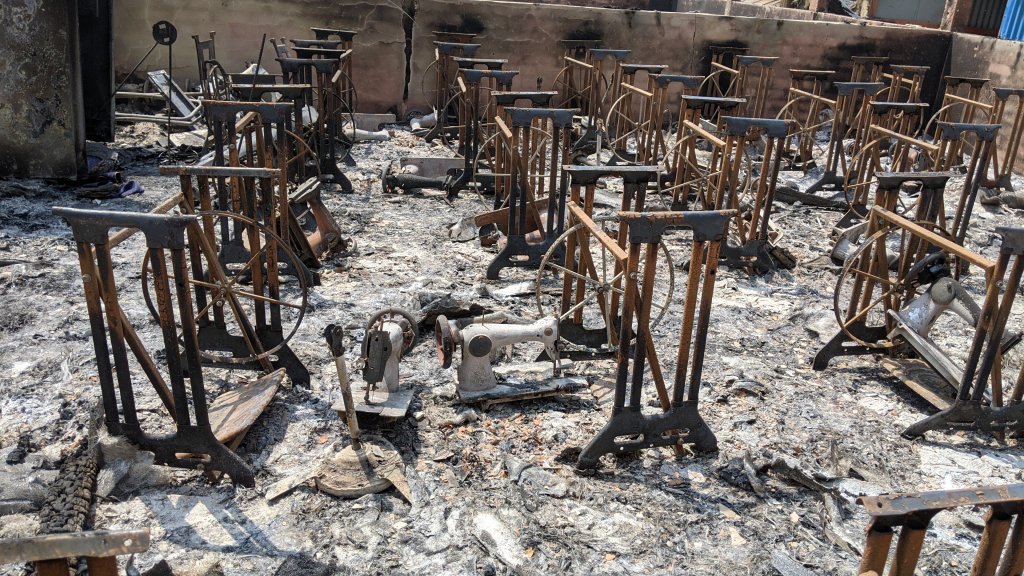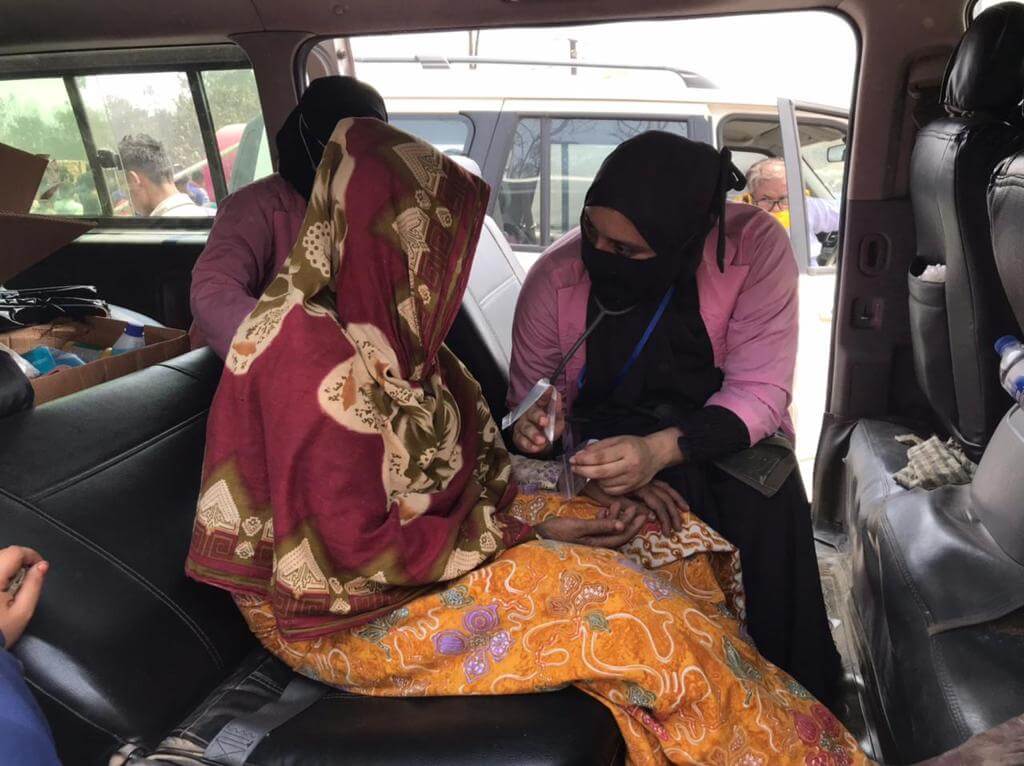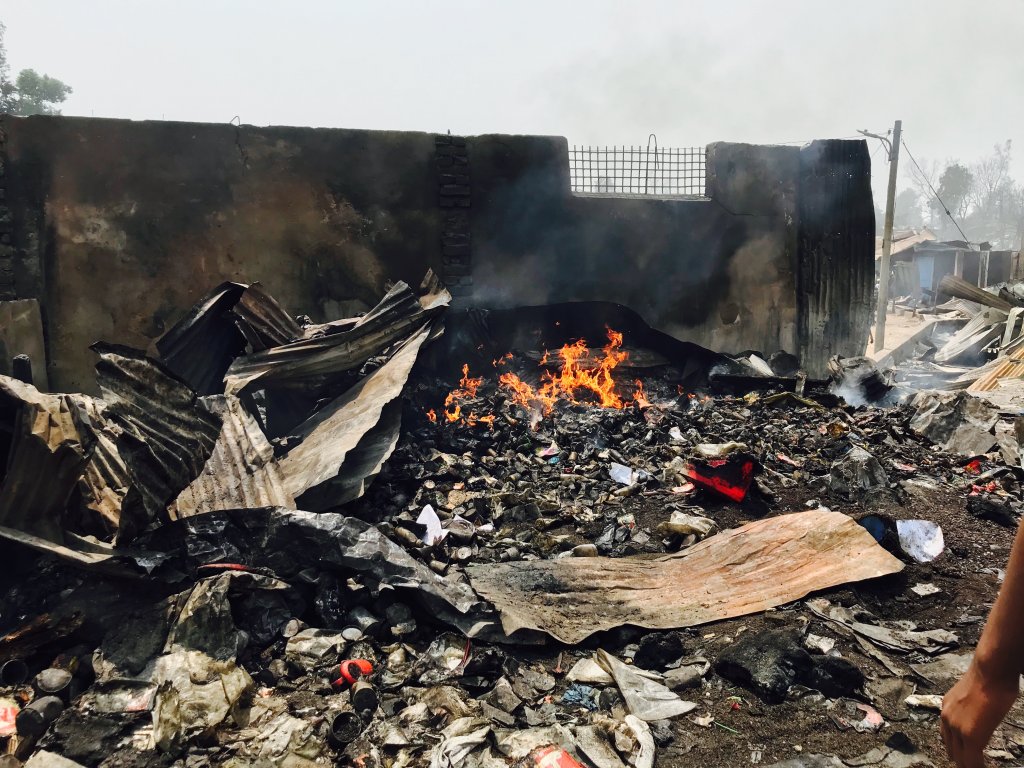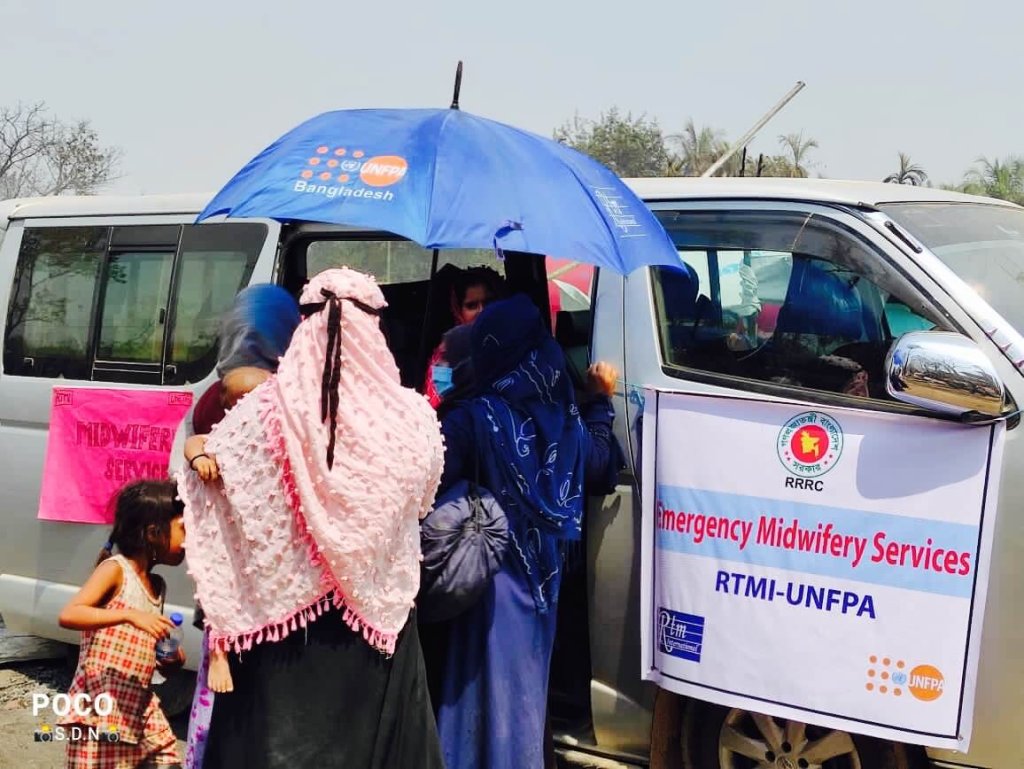Deadly Fire Puts Rohingya Refugees at Further Risk

A fire in a refugee camp in Cox’s Bazar, Bangladesh on Monday, March 22nd, has killed eleven people and jeopardized women’s health and safety.
More than three years have passed since over 700,000 Rohingya refugees fled violence in Myanmar into crowded camps in neighboring Bangladesh. Camp residents continue to face crowded conditions with poor access to proper hygiene and health care.
The fire’s immediate toll

According to CNN, the fire destroyed 10,000 shelters in addition to the fatalities. UN News reports that as many as 87,000 people may have been affected and that 400 people are missing.
Another fire at the camp in January left 3,500 refugees homeless.
Damage to facilities

UNFPA, the UN sexual and reproductive health agency, has long supported Rohingya women and girls living in the camps. UNFPA’s work has included supporting women friendly spaces, distributing health and hygiene supplies, and operating health clinics and women-led community centers.
According to a tweet from UNFPA Bangladesh, one woman friendly space and one community center were destroyed.
A health facility where UNFPA provided midwifery services was also destroyed, meaning women who relied on the care given there have even fewer options for maternal health services.
UNFPA’s response

Even though the fire destroyed the physical buildings UNFPA used, the agency is continuing to provide care for women and girls, so they can have the care they need and deserve no matter what.
Because women do not stop giving birth, getting pregnant, or menstruating even when a crisis like this occurs, UNFPA has established mobile teams to provide reproductive care to people that would have visited the facilities.
UNFPA is working to provide counseling to those affected by the fire and is ensuring the gender-based violence support offered at its facilities is still operational despite the physical destruction. UNFPA has provided tens of thousands of dignity kits, which include hygiene necessities for displaced women and girls such as clean underwear, flashlights, and sanitary pads.
How you can help
USA for UNFPA supporters have stood with UNFPA and Rohingya women and girls since the crisis began in 2017.
You can continue to support this lifesaving work through this especially trying time, by making a contribution here.
-Roger Nokes